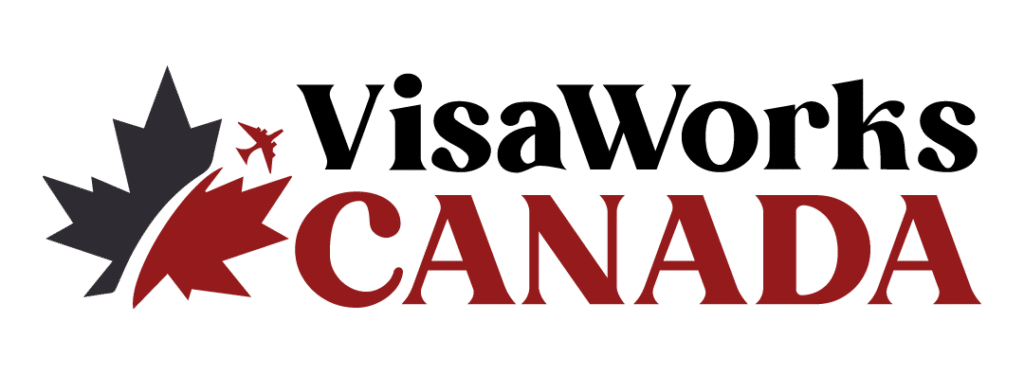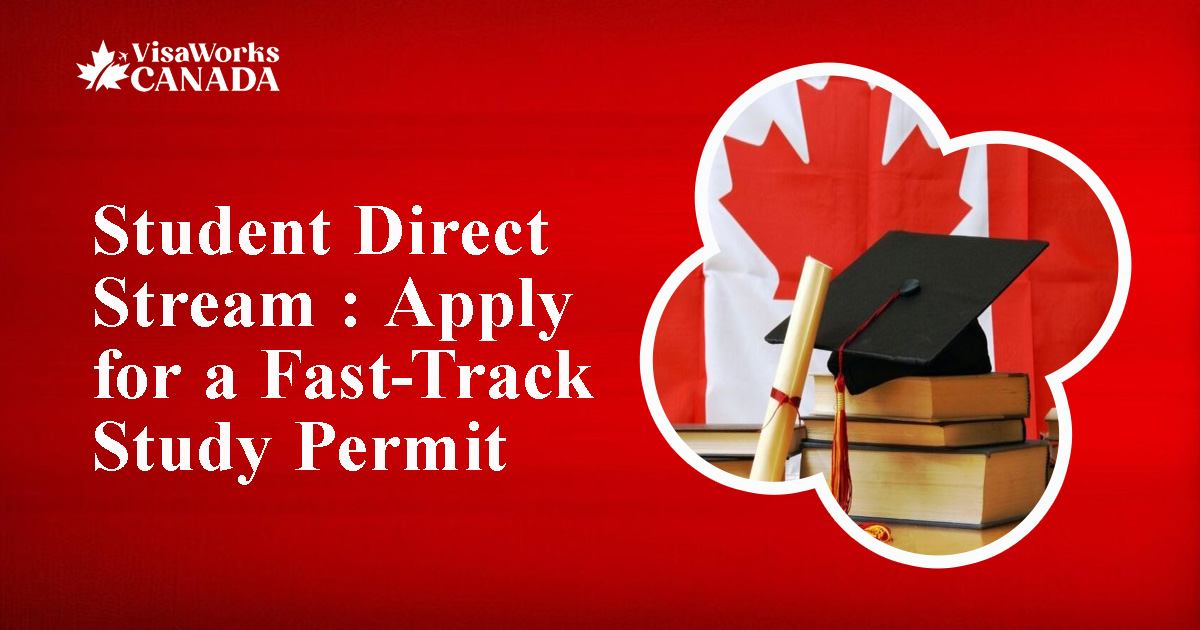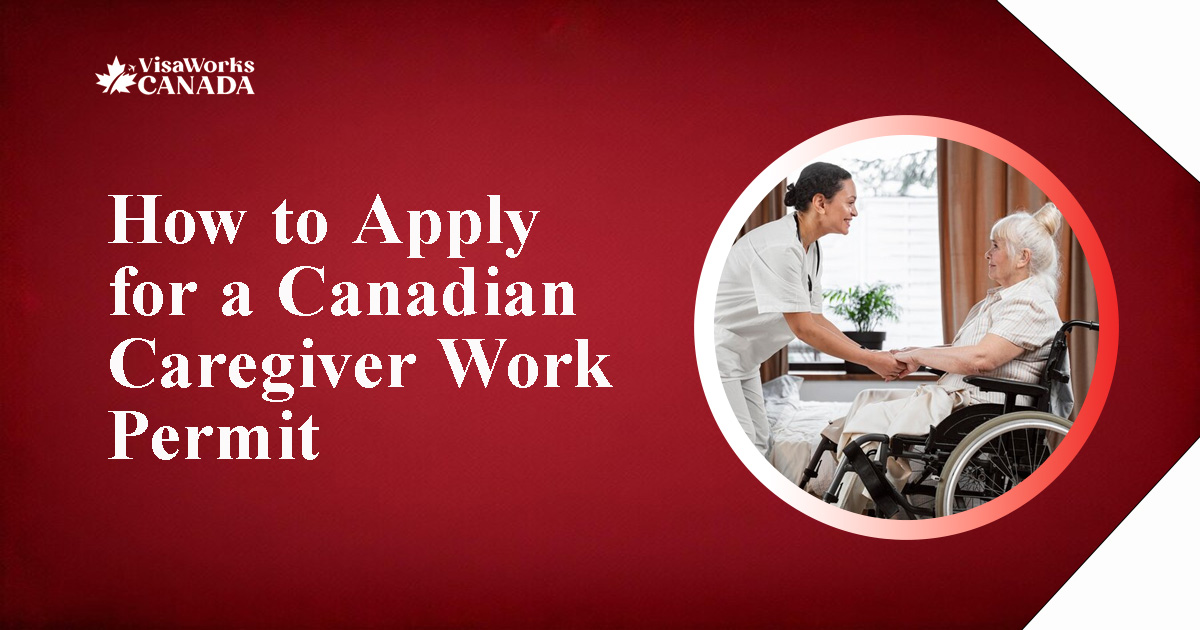Securing a work permit as a caregiver in Canada is a rewarding opportunity. Caregivers provide essential support to families and the healthcare system. This guide will walk you through the steps and information needed to obtain a Canada work permit for caregivers, ensuring you are well-prepared for the process.
Understanding the Caregiver Programs
Canada offers specific programs tailored for caregivers. The two main programs are the Home Child Care Provider Pilot and the Home Support Worker Pilot. Each program has unique requirements and pathways to permanent residency, providing caregivers with opportunities for career advancement and stability.
Home Child Care Provider Pilot
This program is designed for caregivers who care for children in a home setting. Eligible applicants can apply for permanent residency after gaining sufficient work experience in Canada. The program ensures that caregivers have a clear path to establishing their lives in Canada permanently.
Home Support Worker Pilot
The Home Support Worker Pilot is tailored for those providing support to individuals with high medical needs. Like the Home Child Care Provider Pilot, it offers a pathway to permanent residency after meeting the work experience requirements. This program focuses on caregivers who assist individuals with disabilities or chronic illnesses.
Eligibility Criteria
To apply for a caregiver work permit, you must meet specific eligibility criteria. These criteria ensure that only qualified individuals are granted permits, maintaining the quality of care in Canada.
Basic Eligibility Requirements
Applicants must have a valid job offer from a Canadian employer. They should also have at least one year of post-secondary education. Additionally, applicants must demonstrate proficiency in English or French, which is essential for effective communication in their roles.
Educational Qualifications
An Educational Credential Assessment (ECA) is required to validate your educational qualifications. This assessment ensures that your foreign education is equivalent to Canadian standards. It’s a crucial step to verify that your academic background meets the program’s requirements.
Required Documentation
Gathering the necessary documentation is a critical step in the application process. Proper documentation ensures a smooth application process and increases the chances of approval.
Proof of Job Offer
A valid job offer from a Canadian employer is mandatory. This job offer should detail the job role, duties, and salary, ensuring it meets Canadian labor standards. The job offer is a testament to the genuine need for your skills and services.
Valid Passport and Travel Documents
Applicants must have a valid passport and other necessary travel documents. These documents verify your identity and are essential for travel and visa processing. Keeping your documents up to date is vital for a hassle-free application process.
Educational Credential Assessment (ECA)
An ECA report from an authorized organization is required to prove your educational qualifications. This report should confirm that your education meets Canadian standards. It’s an essential document that adds credibility to your application.
Language Test Results
Applicants must provide results from an accepted language proficiency test. This test ensures you can communicate effectively in English or French, which is crucial for performing your duties as a caregiver. Proficiency in language helps in better integration and service delivery.
Steps to Apply for a Caregiver Work Permit
The application process for a caregiver work permit involves several steps. Following these steps carefully will help you navigate the process efficiently.
Step 1: Obtaining a Job Offer
The first step is to secure a job offer from a Canadian employer. Networking and using job search platforms can help you find suitable opportunities. Ensure the job offer is detailed and meets all the requirements set by the immigration authorities.
Step 2: Gathering Required Documents
Once you have a job offer, gather all necessary documents, including your passport, ECA report, and language test results. Ensure all documents are up-to-date and accurate. Proper documentation is key to a successful application.
Step 3: Submitting the Application Online
Create an online account on the official Canadian immigration website. Fill out the application form accurately, ensuring all information matches your documents. Submit the application along with all the required documents.
Step 4: Paying the Application Fees
Pay the required application fees online. Keep a receipt of the payment as proof, which may be needed later in the process. Ensuring timely payment of fees is crucial to keep your application on track.
Step 5: Attending Biometrics Appointment
Schedule and attend a biometrics appointment. Biometrics include fingerprinting and photographing, which are necessary for identity verification. Completing this step promptly helps in faster processing of your application.
Step 6: Waiting for Application Processing
After submitting your application, wait for it to be processed. You can check the status of your application online using your account. Patience during this period is important as the processing times can vary.
Also Read: How to Apply for a Canadian Temporary Work Permit
Tips for Securing a Job Offer
Securing a job offer is a crucial step in the process. Here are some tips to help you find and secure a caregiver job in Canada.
How to Find Job Listings for Caregivers
Use job search websites and platforms dedicated to caregiver positions. Networking with people in the industry can also provide leads on job openings. Regularly checking these platforms increases your chances of finding the right job.
Networking Strategies
Networking can open doors to job opportunities. Join caregiver forums, attend job fairs, and connect with professionals on LinkedIn. Building a strong network can significantly boost your job search efforts.
Crafting a Compelling Resume and Cover Letter
Your resume and cover letter should highlight your skills, experience, and qualifications. Tailor them to the job you are applying for, making sure to emphasize your strengths and suitability for the role. A well-crafted resume can make a significant difference.
Preparing for the Language Test
Language proficiency is a key requirement for caregivers in Canada. Preparing well for the language test will help you achieve the necessary scores.
Types of Accepted Language Tests
Canada accepts several language tests, including IELTS and CELPIP for English, and TEF for French. Choose the test that best suits your language skills. Each test has its own format and scoring system.
Study Tips and Resources
Use online resources, practice tests, and language courses to prepare. Regular practice and studying with a plan can significantly improve your test scores. Consistent preparation is key to achieving a high score.
Understanding the Test Format
Familiarize yourself with the format of the language test you will take. Knowing what to expect on test day can reduce anxiety and improve performance. Practice under test conditions to get a better understanding.
Completing the Educational Credential Assessment
An ECA is required to validate your educational qualifications. Completing this assessment is a crucial step in the application process.
Authorized Organizations for ECA
Several organizations are authorized to provide ECAs, including WES, ICAS, and IQAS. Choose the one that best fits your needs and follow their specific procedures. Each organization has its own processing times and fees.
Steps to Get Your Credentials Assessed
Submit your educational documents to the chosen ECA organization. Follow their instructions carefully to ensure your assessment is completed without delays. Accurate submission of documents is critical for timely processing.
Common Pitfalls to Avoid
Avoid common mistakes such as submitting incomplete documents or incorrect information. Ensure all your documents are accurate and complete before submission. Double-checking your documents can prevent unnecessary delays.
Submitting Your Application
Submitting your application correctly is crucial for a smooth process. Follow these steps to ensure your application is submitted without issues.
Creating an Online Account
Create an online account on the official Canadian immigration website. This account will be used to submit your application and track its status. It also helps in managing your application efficiently.
Filling Out the Application Form Correctly
Fill out the application form with accurate and complete information. Double-check all details to avoid errors that could delay the process. Accurate information is essential for processing your application.
Uploading Supporting Documents
Upload all required supporting documents to your online application. Ensure that the documents are clear, readable, and correctly formatted. Properly uploaded documents help in faster verification.
Application Fees
Understanding and paying the required fees is a crucial part of the application process. Here is a breakdown of the costs involved.
Breakdown of Application Costs
The costs include the work permit processing fee and biometrics fee. Additional costs may apply for document translation and language tests. Knowing the costs helps in planning your finances.
How to Pay the Fees
Pay the fees online through the official immigration website. Use a secure payment method and keep a receipt as proof of payment. Timely payment ensures your application is processed without delays.
Refund Policies
Understand the refund policies in case your application is withdrawn or denied. Typically, fees are non-refundable, but specific conditions may apply. Knowing the policies helps in managing expectations.
Biometrics Appointment
Biometrics collection is a mandatory part of the application process. Here’s what to expect and how to prepare.
What to Expect During Biometrics Collection
Biometrics collection involves fingerprinting and photographing. The process is quick and straightforward, usually taking about 15 minutes. Being prepared helps in smooth completion of this step.
Preparing for Your Appointment
Bring all required documents, including your biometrics appointment letter and identification. Arrive on time to avoid any delays. Proper preparation ensures a hassle-free experience.
Locations for Biometrics Collection
Biometrics can be collected at authorized locations worldwide. Check the official immigration website for the nearest location and book an appointment. Choosing a convenient location helps in easy access.
Waiting for Your Application to Be Processed
After submitting your application, it’s time to wait for the processing. Here’s what you need to know during this period.
Current Processing Times
Processing times vary depending on the volume of applications and other factors. Check the official immigration website for the latest processing times. Being aware of processing times helps in managing expectations.
How to Check Your Application Status
You can check your application status online through your account. Regularly monitor your account for updates and notifications. Keeping track of your application helps in timely follow-ups.
What to Do If There Are Delays
If there are delays, be patient and wait for official communication. Contact the immigration office if the delay is significantly beyond the expected time. Understanding possible delays helps in staying prepared.
Preparing for Your Move to Canada
Once your application is approved, it’s time to prepare for your move. Proper preparation ensures a smooth transition to your new life in Canada.
Arranging Travel and Accommodation
Book your travel and arrange accommodation in advance. Research your new location to find suitable housing options. Proper planning helps in a comfortable move.
Understanding Your Rights and Responsibilities
Familiarize yourself with your rights and responsibilities as a caregiver in Canada. This includes understanding labor laws and your job contract. Being informed helps in protecting your rights.
Cultural Adjustment Tips
Adjusting to a new culture can be challenging. Learn about Canadian customs and culture to ease your transition. Embracing the new culture helps in better integration.
Settling in Canada
Settling in Canada involves several steps. Here’s how to make your transition smooth and successful.
Opening a Bank Account
Opening a bank account is essential for managing your finances. Choose a bank that offers services suited to newcomers. Having a bank account helps in secure transactions.
Getting a Social Insurance Number (SIN)
Apply for a SIN as soon as you arrive in Canada. This number is necessary for working and accessing government services. Timely application for SIN helps in legal employment.
Accessing Healthcare
Canada offers excellent healthcare services. Register for healthcare coverage as soon as possible. Access to healthcare ensures your well-being in a new country.
Challenges and How to Overcome Them
Caregivers may face challenges in their new roles. Here are some common challenges and how to overcome them.
Common Challenges Faced by Caregivers
Challenges may include adjusting to a new culture, language barriers, and homesickness. Recognizing these challenges is the first step to overcoming them.
Solutions and Resources Available
Several resources are available to help caregivers, including community organizations, support groups, and online forums. Seek help when needed and stay connected with others.
Support Resources for Caregivers
Various support resources are available to help caregivers in Canada. These resources can provide assistance and guidance when needed.
Government Support Programs
The Canadian government offers support programs for caregivers, including financial assistance and training programs. Take advantage of these resources to enhance your skills and knowledge.
Community Organizations
Community organizations offer support and resources for caregivers. These organizations can provide valuable assistance and a sense of community.
Online Resources and Forums
Online resources and forums offer a platform to connect with other caregivers. Sharing experiences and advice can be beneficial in navigating your new role.
Renewal and Extension of Work Permit
If you wish to continue working in Canada, you may need to renew or extend your work permit. Here’s how to do it.
When and How to Renew Your Work Permit
Apply for renewal well before your current permit expires. Follow the official guidelines and submit all required documents for a smooth renewal process.
Requirements for Extension
Ensure you meet all the requirements for extending your work permit. This includes maintaining your job offer and meeting the necessary criteria.
Keeping Your Status Legal
Maintaining your legal status in Canada is crucial. Always stay informed about the requirements and deadlines to avoid any legal issues.
Family Sponsorship Options
Caregivers can sponsor family members to join them in Canada. Here’s how to go about it.
How to Sponsor Family Members
Family sponsorship allows you to bring your loved ones to Canada. Follow the official process and ensure you meet all eligibility criteria.
Eligibility Requirements for Sponsorship
Sponsorship requires meeting specific financial and residency requirements. Ensure you understand and meet these requirements before applying.
Application Process for Family Sponsorship
The application process for family sponsorship involves several steps. Submit all required documents and follow the guidelines to ensure a successful application.
FAQs About Canada Work Permits for Caregivers
What are the basic eligibility requirements for a caregiver work permit?
You need a valid job offer, at least one year of post-secondary education, and proficiency in English or French.
How long does it take to process a caregiver work permit application?
Processing times vary but generally take several months. Check the official immigration website for the latest updates.
Can caregivers apply for permanent residency in Canada?
Yes, caregivers can apply for permanent residency after meeting the work experience requirements.
Conclusion
Securing a work permit as a caregiver in Canada involves several steps and requirements. With proper preparation and understanding, you can navigate the process successfully and embark on a rewarding career in Canada.
From expert visa services to comprehensive guidance on permanent residency, study visas, and business ventures in Canada, we’re here to help you navigate every step of your journey. Contact VisaWorks Canada now for personalized assistance.












